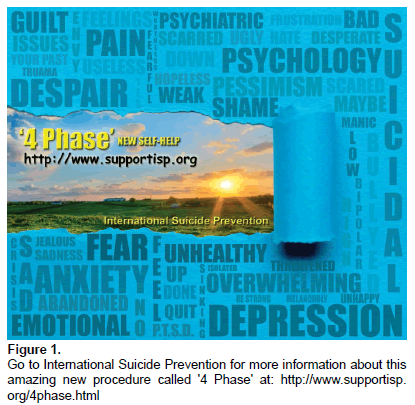Letter to Editor Open Access
Suicidal People are Made, Not Born, Norman Farberow, February 12, 1918 September 10, 2015
Matthew D. Dovel*Scientist – Human Behavioral Modification, President of International Suicide Prevention, Las Vegas, NV, USA
Visit for more related articles at International Journal of Emergency Mental Health and Human Resilience
Abstract
Norman Farberow a great psychologist known for being at the forefront of suicide prevention passed away on September 10, 2015, on World Suicide Prevention Day, at the age of 97. He is quoted as saying, “Suicidal people are made, not born. We can therefore unmake them as we learn more about the roots of self-destructive behavior. Suicide is less a decision than a reaction. I believed that if they could learn what is being reacted to, then we would have an opportunity to interrupt the suicidal impulse.
• Death of Norman Farberow
• Decision making process
• Interrupting the suicidal impulse
• Sigmund Freud’s ‘beyond the pleasure principle’
• Trauma identification
• The stigma dilemma
• Research results
• Self-help for suicidal ideation
Norman Farberow a great psychologist known for being at the forefront of suicide prevention passed away on September 10, 2015, on World Suicide Prevention Day, at the age of 97.
He is quoted as saying, “Suicidal people are made, not born. We can therefore unmake them as we learn more about the roots of self-destructive behavior. Suicide is less a decision than a reaction. I believed that if they could learn what is being reacted to, then we would have an opportunity to interrupt the suicidal impulse."
Scientist Matthew D. Dovel working in the field of human behavioral modification agrees with the late Mr. Farberow. Taking it a step farther Mr. Dovel has created a way for even a child to find and interrupt the suicidal impulse. The procedure named, ‘4 Phase’ because, it causes a subject to phase between the consciousness and subconscious four times while focusing on a traumatic experience.
This new procedure created to interrupt the suicidal impulse takes advantage of a naturally occurring phenomenon that was noted while observing conflict resolution counseling. If someone is experiencing intense emotional suffering then suggest that they view the situation and/or circumstance from four different points of view. The results will be that the individual will suddenly soften becoming willing to open a dialog with a combatant.
Sigmund Freud (1922) talked about the pleasure principle and how we are controlled by the need to seek out pleasure in the decision making process. We also are driven to avoid pain at any cost. When someone experiences a situation and/or circumstance outside the scope of their normal life experiences it is called a trauma. Traumas are stored in our consciousness where primary decision making is. If a trauma is severe enough it will cross the threshold overriding the self-preservation mechanism that protects us from imitate danger from the loss of life. While we have a need to stay a safe distance away from fire it is not necessary to avoid anything warm just because it now causes recurring memories of seeing a friend getting burned to death.
By lessening the intensity level of a traumatic experience, it will permanently move a trauma out of the consciousness and into the subconscious for new evaluation, and then free the consciousness for rational decision making.
In 2006, field testing began on ‘4 Phase’ with a 24/7 suicide prevention hotline at International Suicide Prevention, a 501(c) (3) public charity nonprofit organization. A procedure designed to interrupt the suicidal impulse started to work immediately for those that were seeking help over the phone. Over time the procedure was perfected and then adapted into a self-help procedure.
The stigma associated with suicidal thoughts, being classified as a mental illness, although correct in definition, creates a barrier for those wanting to seek help, and each time a suicide is justified as having been caused by an undetected and/or misdiagnosed mental illness just deepens the already stigmatized issue.
In November of 2014 ‘4 Phase’ the self-help version went live on International Suicide Preventions website. Thanks mainly to a grant for search engine placement from Google, two to three hundred people per day visit ‘4 Phase’ self-help to experience relief from intense emotional suffering. Suicidal individuals have difficult obstacles to overcome that ‘4 Phase’ meets and exceeds by bypassing stigma allowing individuals to remain anonymous, it is quick, permanent, easy, and free (Figure 1).
Figure 1: Go to International Suicide Prevention for more information about this amazing new procedure called '4 Phase' at: http://www.supportisp.org/4phase.html
References
- 4 Phase, Accessed from: http://www.supportisp.org/4phase.html
- Freud, S. (1922). ‘Beyond the pleasure principle’ Accessed from: http://www.bartleby.com/276/1.html
- International Suicide Prevention, a 501(c)(3) public charity, Accessed from http://www.supportisp.org
- Stigma, Accessed from: http://dictionary.reference.com/browse/
stigma
- The Washington Post (September 18, 2015). Norman Farberow: https://www.washingtonpost.com/national/health-science/ norman-farberow-a-psychologist-at-forefront-of-suicideprevention- dies-at-97/2015/09/18/68d9d86a-5d86-11e5-b38e- 06883aacba64_story.html
Relevant Topics
Recommended Journals
Article Tools
Article Usage
- Total views: 9860
- [From(publication date):
specialissue-2015 - Jul 03, 2025] - Breakdown by view type
- HTML page views : 8944
- PDF downloads : 916

